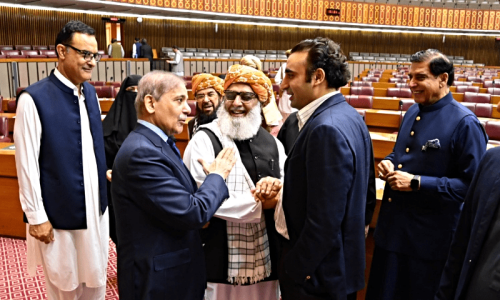It was gone to the Public Gathering at the time these lines were being composed. The bill that was passed yesterday appeared to be a more watered-down version when compared to the draft that had emerged following the unsuccessful initial attempt to squash the amendments.
Even the PTI acknowledged that it was “much better” than the initial proposals, even though it missed an important opportunity to suggest changes to the bill by boycotting the voting process. The party’s innovator in the Senate, Advodate Ali Zaffar, was bountiful in his commendation for JUI-F boss Maulana Fazlur Rehman for this ‘accomplishment’, despite the fact that he kept up with his party’s reservations on the new cycle for judges’ choice and key arrangements in the unrivaled legal executive.
The 22 amendments included in the bill that the parliament approved were less than half of the more than 50 provisions in the earlier drafts. PTI leaders stated that they would have participated in the voting process if it were held at a later date, primarily because they still needed to consult their jailed party chief on some remaining items. This depleted version was also almost universally accepted.
It appeared from the outset that the most contentious of the proposed amendments would remain the new procedure for the appointment of the Supreme Court chief justice, with the government having an unprecedented say in who is chosen. Given the long-running fights and divisions, both inside the pinnacle court and between the parts of the state, and their effect on major political improvements in the country, the progressions being made could set off another deadlock between the lawful brotherhood and the public authority. How the legal advisors’ local area responds is not yet clear.
A trepidation stays that the decision alliance might attempt to abuse their preferred revisions to choose judges to the new ‘sacred seat’, or lift a ‘similar’ judge to the central equity’s situation. As the primary opponent of these amendments, perhaps the PTI should have taken its responsibility more seriously. To make the process “fairer,” it should have presented alternative ideas or suggested modifications. It could have at least claimed to have offered alternative options if these proposals were ultimately rejected during the process.
However, the government remained in charge of developing a consensus, and the option ought to have been exhausted if securing agreement from all parties required additional days or even weeks. Instead, the government agreed to a arbitrary deadline in order, it would appear, to get ahead of the Supreme Court’s upcoming change of guard. The next step in the process is yet to be determined.



